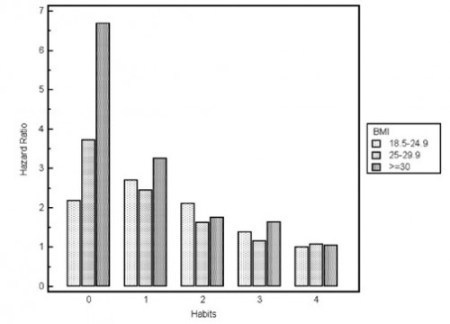 I am angrier than I have been in a very long time. I have had enough. We have officially crossed a line. Several readers sent me this article [trigger warning: I’m still depressed more than 24 hours after reading it. It’s horrible]. In it 54% of doctors in the UK who took part in a survey said that “the NHS should have the right to withhold non-emergency treatment from patients who do not lose weight or stop smoking.”
I am angrier than I have been in a very long time. I have had enough. We have officially crossed a line. Several readers sent me this article [trigger warning: I’m still depressed more than 24 hours after reading it. It’s horrible]. In it 54% of doctors in the UK who took part in a survey said that “the NHS should have the right to withhold non-emergency treatment from patients who do not lose weight or stop smoking.”
My life is not worth less than a thin person’s life. My health is not less important than a thin person’s health. I do not need to do anything to “deserve” the same healthcare that people with a lower BMI receive.
First the good news: 54% represents 593 of the 1,096 doctors who self-selected to take the survey. To be clear – that’s in no way a representative sample – according to some reports it represents .2% of doctors. The Royal College of Physicians, which represents hospital doctors, said “Lifestyle rationing is creeping into the NHS. There are reported examples where treatments have been restricted by PCTs and we wouldn’t agree with that.” They are calling it “lifestyle rationing.” So that’s the good news, here comes the rant.
I think that smoking and obesity are not comparable, but I don’t believe in denying healthcare to smokers, still I’ll keep this discussion to obesity since that’s where my expertise lies. Before I even get into a civil rights discussion, let’s talk about the practical considerations:
First, what is included in the “non-emergency” procedures? Were I a fat woman in the UK, what should I expect to be denied treatment for? Strep throat? Sprained ankle? Chronic back pain? Acute back pain? Do I get a pap smear, mammogram or basic blood work? Or do they do the test but refuse to treat any non-emergency issues that the blood work uncovers?
Second – knowing that weight loss fails 95% of the time I am stuck with some really bad choices? Do I try to crash diet to get treatment and hope that the treatment works before I gain all my weight back? Studies show that exercise makes me healthier but rarely leads to weight loss. However, it also leads to injuries – should I stop dancing, doing pilates, lifting weights etc. to avoid getting an injury for which I will be denied treatment?
Finally, we already know that non-emergencies left untreated can become emergencies. Painful, expensive, unnecessary, deadly emergencies. How many fat people won’t bother going in to the doctor at all until it’s too late? Why are people comfortable with me dying because of the way that I look? Using BMI as a measurement also means that very tall and very muscular people will be denied care.
Not for nothing, but in the UK the obese people and the smokers pay the same amount into the system as thin people and non-smokers. So these 54% of doctors are asking people to pay into a system that will then deny them care.
Let’s look at the claims for why this is a “good idea”:
Operating on a very fat person is more dangerous. Anaesthetically it’s harder, the surgery is harder and the rehabilitation takes longer.
Operating on babies is harder. Operating on the elderly is harder. Operating on people with certain pre-existing conditions is harder. If they find out that a specific ethnic group has worse surgery outcomes will they start denying them surgeries? Does it mean that if enough doctors have a prejudice that the medical establishment will indulge it? The job of surgeons is not to cherry pick the easy surgeries. It sounds like there is a need to do more work to develop protocols for performing surgery on fat people. I also happen to know that they don’t use fat corpses in medical schools because it’s too difficult to deal with the weight. I say deal with it, figure it out – doctors deserve an education that prepares them for the real world, not an education that makes them prejudiced against their future patients.
It’s their own fault that they are fat so they don’t deserve healthcare.
Leaving aside the fact that weight has been suggested to be as heritable as height, and that there are many reasons that people become fat (including some of the non-emergency health problems that we’re planning NOT to treat fat people for), since when do we decide if people deserve healthcare based on whether their issue is their own fault? I have a friend who has one leg. His other was amputated after he got on his motorcycle drunk and got into an accident. He receives both excellent medical care and disability payments, even though he injuries are, by his own admission, entirely his fault and the result of his “stupidity”. If we didn’t treat people whose medical problems were their own fault that would really change the face of medicine and not in a good way. What about thin people who get so-called “fat people” diseases like heart disease or diabetes? Do we assume that these diseases are the patients fault if the patient is fat but something else’s fault if the patient is thin?
And these doctors, who want to deny me medical care because of statistics – they don’t have a single piece of research to suggest that the weight loss they are demanding of me is possible in the long term. So they are asking me to engage in the medically dangerous practices of crash dieting and weight cycling. They are asking me to put my health in danger in order to “deserve” medical care and if my dangerous crash dieting and weight cycling doesn’t work and leads to medical problems THEY WON’T TREAT ME FOR THEM!!!! What the actual fuck people?
I will say it again: My life is not worth less than a thin person’s life. My health is not less important than a thin person’s health. I do not need to do anything to “deserve” the same healthcare that people with a lower BMI receive. Rather than trying to figure out how to get us the hell out of their offices and operating rooms, I think that doctors should be LIVID that they don’t have the proper tools and education to care for their patients of size. I do not believe that healthcare is just for the rich and the thin. I think that we need the smartest minds in the world working to figure out how to provide good healthcare to everyone, I believe it’s possible if we will apply ourselves as people against a problem rather than doctors against fat people.
I believe that change will happen in my lifetime when it comes to civil rights for people of size. I am also aware that it may get worse before it gets better. There will be bad days, after reading this article, yesterday was a bad day for me. I was on the way home thinking about this article and a song came on the radio that made me feel better so, being an unrepentant Inspiration Junkie, I’ll leave it here in case it helps someone else:
Join the Club – Support the Work!
I do HAES and SA activism, speaking and writing full time, and I don’t believe in putting corporate ads on my blog and making my readers a commodity. So if you find value in my work, want to support it, and you can afford it, please consider a paid subscription (it works like a fan club where you get extras, discounts on stuff, free subscriber meet-ups etc.) or a one-time contribution. The regular e-mail subscription (available at the top right hand side of this page) is still completely free. If you’re curious about this policy, you might want to check out this post. Thanks for reading! ~Ragen









